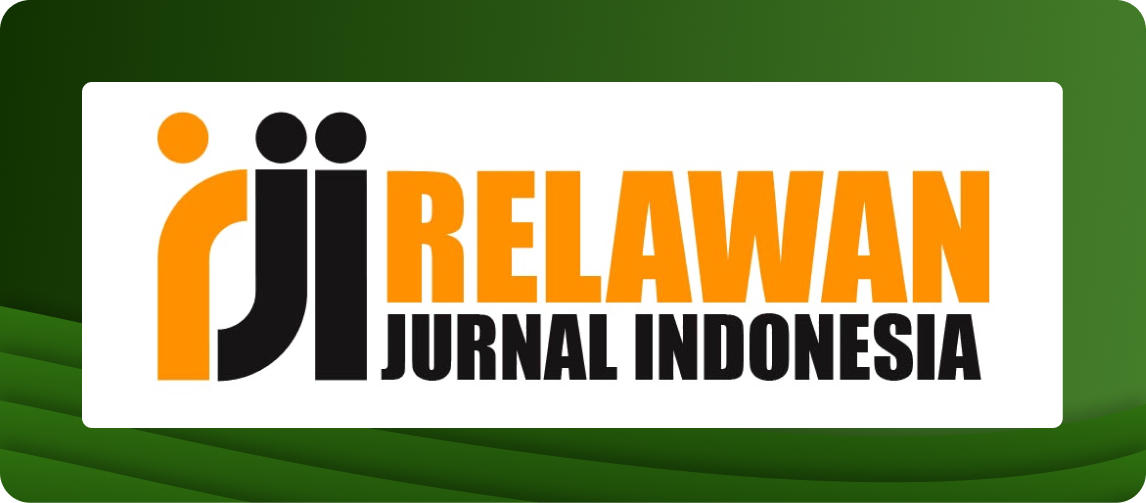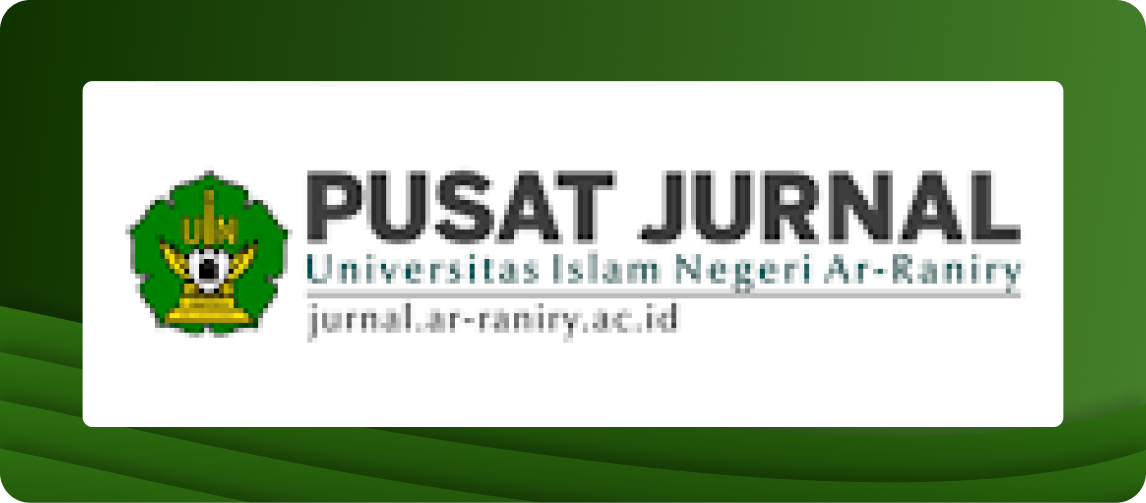Influence of Family Background on Islamic Entrepreneurial Skills among Students in Aceh’s Islamic Higher Education Institutions
DOI:
https://doi.org/10.22373/we1tht63Keywords:
Family Institution, Islamic Entrepreneurial Skills, Higher Education, Aceh, IndonesiaAbstract
This study investigates the impact of family background on Islamic entrepreneurial competencies among students in Aceh’s Islamic higher education institutions. Utilizing a quantitative survey, the research explores key variables such as the occupational backgrounds of both parents. The findings reveal two significant factors influencing students’ Islamic entrepreneurial competencies: the occupational backgrounds of their fathers and mothers. However, the mother’s influence is more prominent, particularly in shaping students’ psychomotor competencies, while no significant effect was found on cognitive and affective domains. The study highlights the need to incorporate family influences into the broader framework of entrepreneurial education in Islamic institutions. It suggests that educational policies should not only focus on skill development but also engage families actively in the learning process. By integrating family support, these institutions can empower students to leverage their backgrounds, fostering both economic and spiritual development within the community.
References
Journals and Books
Abubakar, Abubakar, Arfriani Maifizar, Heri Fajri, Basri Basri, and Nanda Saputra. “The Indonesian Journal of the Social Sciences Integrating Entrepreneurial Values into Faith-Based Education : A Study of Traditional Pesantren in Aceh.” Jurnal Ilmiah Peuradeun 13, no. 2 (2025). https://doi.org/https://doi.org/10.26811/peuradeun.v13i2.1934.
Aceh, Pemerintah. “Wirausahawan Harus Kreatif Dan Inovatif,” 2014.
Alidar, EMK, Muhammad Maulana, Arroyyan Ramly, and Nadhilah Filzah. “Non-Muslim Perception of Sharia Banking Products and Services in Aceh, Indonesia.” AHKAM : Jurnal Ilmu Syariah 24, no. 1 (2024). https://doi.org/10.15408/ajis.v24i1.39188.
Andani, Charlie, and Ida Puspitowati. “The Influence of Entrepreneurial Education and Family Background on Entrepreneurial Intention That Is Moderated By Gender.” International Journal of Application on Economics and Business 1, no. 4 (2023). https://doi.org/10.24912/ijaeb.v1i4.2123-2131.
Anderson, Lorin W., David R. Krathwohl, and Benjamin Samuel Bloom. A Taxonomy for Learning, Teaching, and Assessing: A Revision of Bloom’s Taxonomy of Educational Objectives. Addison Wesley Longman, Inc., 2001.
Azizah, Nur, Gena Diniarti, Veroyunita Umar, and Tin Suharmini. “Role of Parents in Implementing the Post-School Transition.” Jurnal Ilmiah Peuradeun 12, no. 1 (2024). https://doi.org/DOI : https://doi.org/ 10.26811/peuradeun.v12i1.961.
Dairobi, Muhammad, Muhammad Revandi Darmawan, Firda Rizqika Fitria, Muhammad Eri Rahmawan, and Muhammad Fikri Wirapratama. “Studi Tentang Minat Berwirausaha Ditinjau Dari Pendidikan Kewirausahaan, Religiusitas, Dan Lingkungan Keluarga.” Jurnal Manajemen Dinamis 6, no. 2 (2024).
Dayyan, Muhammad, Ainun Mardhiah, and Masdalifah Sembiring. “Da’Wah Experience, Spiritual, and Economic Resilience of Jamaah Tabligh in Langsa.” Jurnal Ilmiah Islam Futura 19, no. 2 (2019). https://doi.org/10.22373/jiif.v19i2.4545.
Djazilan, Muhammad Sukron, and Didit Darmawan. “Entrepreneurship Education and Family Support: The Determinants That Appear Entrepreneurship Interest for Students.” ISSE International Journal of Service Science 1, no. 2 (2022).
Fauzia, Ika Yunia. Islamic Entreprenneurship, Kewirausahaan Berbasis Pemberdayaan. Depok: Rajawali pers, 2019.
Furqanisah. “Entrepreneurship Education In Improving Students ’ Competencies ; Competency-Based Perspective.” DeSultanah: Journal Education and Social Science 02, no. 01 (2024).
Georgescu, Maria Ana, and Emilia Herman. “The Impact of The Family Background on Students’ Entrepreneurial Intentions: An Empirical Analysis.” Sustainability (Switzerland) 12, no. 11 (2020). https://doi.org/10.3390/su12114775.
Hair, Joe F., Marko Sarstedt, Lucas Hopkins, and Volker G. Kuppelwieser. “Partial Least Squares Structural Equation Modeling (PLS-SEM): An Emerging Tool in Business Research.” European Business Review 26, no. 2 (2014). https://doi.org/10.1108/EBR-10-2013-0128.
Harianti, A., Malinda, M., Nur, N., Suwarno, H. L., Margaretha, Y., & Kambuno, D. “Peran Pendidikan Kewirausahaan Dalam Meningkatkan Motivasi, Kompetensi Dan Menumbuhkan Minat Mahasiswa.” Jurnal Bisnis Dan Kewirausahaan 16, no. 3 (2020).
Jannah, Miftahul. “Konsep Keluarga Idaman Dan Islami.” Gender Equality: International Journal of Child and Gender Studies 4, no. 5 (2018).
Kadir, Abdul, Burhan, Mahrudin, and Sumardona. “Women and Family Based Voter Education Strategy to Increase Community Participation in Elections in Buton, Indonesia.” Samarah 8, no. 3 (2024). https://doi.org/10.22373/sjhk.v8i3.24050.
Kasim, Tengku Sarina Aini Binti Tengku, Siti Falihah Binti Yaakob, and Nor Fahimah Binti Mohd Razif. “Family Influence on Female’s Blood Education in the Context of Islamic Practice in Malaysia.” El-Usrah 7, no. 2 (2024). https://doi.org/10.22373/ujhk.v7i2.26252.
Kuncoro, Mudrajat, and Sari Wahyuni. “Nurturing Transgenerational Entrepreneurship in Ethnic Chinese Family SMEs: Exploring Indonesia.” Journal of Asia Business Studies 13, no. 2 (2019).
Lailatussaadah, Salma Hayati, Asyraf Isyraqi Bin Jamil, and Fakhrul Adabi Bin Abdul Qadir. “Mapping TPACK Components in the Implementation of Edupreneur-Profiled Curriculum at Teacher Training and Education Institutions in Aceh.” Tadris: Jurnal Keguruan Dan Ilmu Tarbiyah 8, no. 2 (2023).
Lailatussaadah, Asyraf Isyraqi Bin Jamil, and Fakhrul Adabi Bin Abdul Kadir. “Designing and Assesing an Islamic Entrepreneurship Education Model for Islamic Higher Education (IHE).” Islam Futura 23, no. 1 (2023). https://doi.org/10.22373/jiif.v23i1.17556.
Lubis, Lahmuddin, Abdillah Abdillah, and Husni Khaidirali Lubis. “The Inheretance of Islamic Education Velues Through Oral Tradition of Perateb Aneuk in Aceh.” International Journal on Language, Research and Education Studies 4, no. 2 (2020).
Mabrur, Imam, Novi Yanti, Sandra Dewi, Nur Fitri Hidayanti, and Ahadiah Agustina. “Faktor-Faktor Yang Mempengaruhi Minat Berwirausaha Pada Mahasiswa : Sebuah Kajian Literatur.” In Seminar Nasional Paedagoria, 4:382–98, 2024.
Moch. Khoirul Anwar, Ahmad Ajib Ridlwan, Yan Putra Timur, Tazkiyah Nur Laili Citra Dewi, Juliana Juliana, and Anwar Adem Shikur. “Business Success of Asnāf Women’s Entrepreneur: An Islamic Law Perspective.” AL-IHKAM: Jurnal Hukum & Pranata Sosial 19, no. 1 (2024). https://doi.org/10.19105/al-lhkam.v19i1.8690.
Mohd Aderi, Che Noh, Ajmain Mohd Talhah, and Engku Abdul Rahman Engku Zarihan. “Teachers’ Practice of Higher Order Thinking Skills in the Lesson of Islamic Education.” Tinta Artikulasi Membina Ummah 3, no. 2 (2017).
Muamar, Afif, Syamsul Rijal, Moh Mabruri Faozi, and Mahfudin. “Family and Creative Economy in Sunan Gunung Djati Religious Tourism Area, Cirebon, Indonesia.” El-Usrah 7, no. 1 (2024). https://doi.org/10.22373/ujhk.v7i1.21987.
Nguyen, Cuong. “Demographic Factors, Family Background and Prior Self-Employment on Entrepreneurial Intention-Vietnamese Business Students Are Different: Why?” Journal of Global Entrepreneurship Research 8, no. 10 (2018). https://doi.org/10.2139/ssrn.3906095.
Nurlaila. “Upacara Adat Peutron Aneuk Dan Peucicap Dalam Masyarakat Aceh.” Itqan: Jurnal Ilmu-Ilmu Kependidikan IV, no. 2 (2013).
Parihar, Sapna. “Entrepreneurial Intent: Exploring the Roles of Gender and Family Business Background.” International Journal of Marketing & Business Communication 6, no. 4 (2017).
Prasetyani, Dwi. Kewirausahaan Islami. Surakarta: Djiwa Amarta Press, 2020.
Putra, Muhammad Deni, Akhmad Rofiki, Ana Toni Roby Candra Yudha, Ivan Riyadi, and Siti Fadilla. “When the Sacred Meets the Market: The Commodification of Islamic Housing in Lima Puluh Kota, West Sumatra.” Journal of Islamic Law 6, no. 1 (2025). https://doi.org/10.24260/jil.v6i1.3539.
Rahmawati, Khairul Hasyimi, and Rizka Rahayu. “Upaya Meningkatkan Literasi Keuangan Pada Siswa Sekolah Di Desa Keulilee Aceh Utara.” Malik Al- Shalih: Jurnal Pengabdian Masyarakat 2, no. 1 (2023).
Rofiah, C. “Pengaruh Konsep Diri Dan Lingkungan Sekolah Terhadap Minat Berwirausaha Peserta Bazar Hari Ulang Tahun (HUT) Madrasah Aliyah Negeri (MAN) I (Satu) Jombang Tahun 2015.” E-Jurnal Manajemen Kinerja, 2015.
Saminan, Saminan, Irwandi Irwandi, Muhjam Kamza, and Mohammad Sattar Bin Rasul. “Acehnese Ethnoscience As an Interdisciplinary Approach in Physics Education: Innovating in the Era of Merdeka Belajar.” Jurnal Ilmiah Peuradeun 12, no. 3 (2024). https://doi.org/10.26811/peuradeun.v12i3.1277.
Schröder, Elke, Eva Schmitt-Rodermund, and Nicolas Arnaud. “Career Choice Intentions of Adolescents With a Family Business Background.” Family Business Review 24, no. 4 (2011). https://doi.org/10.1177/0894486511416977.
Suhartini, Endeh, Euis Hertiani, R. Djuniarsono, Hidayat Rumatiga, and Nurfajrina Sabila PM. “Analysis of Halal Certification for Micro and Small Business Actors from the Perspective of Maslahah Principles and Legal Certainty.” Al-’Adalah 21, no. 2 (2024). https://doi.org/10.24042/adalah.v21i2.23442.
Supriyadi, Supriyadi, Rahma Aulia, Labib Nubahai, Rozanah Ab Rahman, and Rosmah Mohamed. “Legal Effectiveness of Halal Product Certification in Improving Business Economics in Indonesia and Malaysia.” Al-Ahkam 34, no. 1 (2024). https://doi.org/10.21580/ahkam.2024.34.1.20546.
Suri, Fraulein Intan, and Henry Iwansyah. “Analysis of Relationship between Religious Knowledge, Attitude, and Behaviour of Islamic Universities Female Students towards the Halalness of Cosmetic and Wear Products.” Al-’Adalah 21, no. 2 (2024). https://doi.org/10.24042/adalah.v21i2.15866.
Suryawan, Tjokorda Gde Agung Wijaya Kesuma, and Ni Nyoman Intan Ratna Dewi. “Analisis Pengaruh Pengetahuan Kewirausahaan Dan Lingkungan Keluarga Terhadap Minat Berwirausaha Siswa Kelas XII SMKN 1 Gianyar.” Jurnal Penelitian Dan Pengabdian Kepada Masyarakat Universitas Ngurah Rai 16, no. 1 (2024).
Syamsuddin, A. B., Syam’un Syam’un, Muh Ilham, Usman Jasad, and Idris Rasyid. “Parenting Children in A Religious Perspective of Fishermen’s Families In Sinjai, Indonesia: Structural Functionalism Approach.” Samarah 8, no. 1 (2024). https://doi.org/10.22373/sjhk.v8i1.17854.
Wibowo, Agus, Sri Umi Mintarti Widjaja, Sugeng Hadi Utomo, Djoko Dwi Kusumojanto, Cipto Wardoyo, Ludi Wishnu Wardana, and Bagus Shandy Narmaditya. “Does Islamic Values Matter for Indonesian Students’ Entrepreneurial Intention? The Mediating Role of Entrepreneurial Inspiration and Attitude.” Journal of Islamic Accounting and Business Research 13, no. 2 (2022). https://doi.org/10.1108/JIABR-03-2021-0090.
Wijaya, Nicho Hadi. “The Challenges of Sharia Pawnshops in Indonesia in The Era of The Industrial Revolution 4.0.” El-Mashlahah 12, no. 1 (2022). https://doi.org/10.23971/elma.v12i1.3910.
Published
Versions
- 2025-06-30 (4)
- 2025-07-06 (3)
- 2025-06-30 (2)
- 2025-06-30 (1)
Issue
Section
License
Copyright (c) 2025 Lailatussaadah Lailatussaadah, Asyraf Isyraqi Bin Jamil, Abd Aziz Rekan, Salma Hayati and Nurmayuli Nurmayuli

This work is licensed under a Creative Commons Attribution-ShareAlike 4.0 International License.
Authors who publish in El-Usrah: Jurnal Hukum Keluarga agree to the following terms:
Authors retain copyright and grant the journal right of first publication with the work simultaneously licensed Attribution-ShareAlike 4.0 International (CC BY-SA 4.0) that allows others to share the work with an acknowledgment of the work's authorship and initial publication in this journal.
Authors are able to enter into separate, additional contractual arrangements for the non-exclusive distribution of the journal's published version of the work (e.g., post it to an institutional repository or publish it in a book), with an acknowledgment of its initial publication in this journal.
Authors are permitted and encouraged to post their work online (e.g., in institutional repositories or on their website) prior to and during the submission process, as it can lead to productive exchanges, as well as earlier and greater citation of published work. (See The Effect of Open Acces)

















